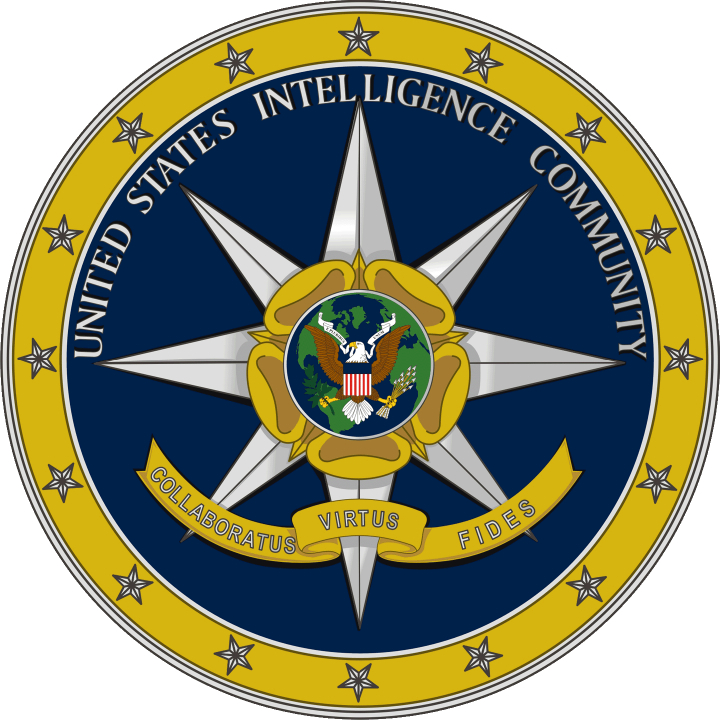Tag: United States Intelligence Community
Mr Trump, Spoils system e National Security Council.
Giuseppe Sandro Mela.
2016-12-20.
Con il termine “spoils system” si intende la pratica politica per cui ad un rinnovo di una carica politica conseguono le dimissioni di tutti gli alti burocrati da quella carica dipendenti.
Questa procedura soddisfa una esigenza tipica di ogni organizzazione di grandi dimensioni: le alte cariche burocratiche svolgono sicuramente compiti amministrativi, ma questi sono a livello tale da essere imprescindibilmente a contenuto politico.
Sarebbe semplicemente impensabile poter governare seguendo una linea politica od economica non condivisa dalla alta dirigenza burocratica.
*
«Il Consiglio per la sicurezza nazionale (National Security Council in inglese) è il principale organo che consiglia e assiste il presidente degli Stati Uniti in materia di sicurezza nazionale e politica estera.
Il Consiglio fu creato nel 1947, ad opera del presidente Harry S. Truman, attraverso il National Security Act. L’intento era quello di assicurare il coordinamento e la collaborazione tra marina, esercito, aviazione ed altri strumenti della politica di sicurezza nazionale (come la CIA, creata anch’essa con la stessa legge).
Fin dalla sua istituzione la funzione del Consiglio è stata anche quella di consigliare e assistere il presidente in materia di sicurezza nazionale e politica estera. Il Consiglio inoltre ha servito il presidente come braccio principale per il coordinamento di tali politiche tra le varie agenzie governative.
Il Consiglio è presieduto dal presidente degli Stati Uniti d’America. I suoi membri di diritto (sia statutari che non) sono il vicepresidente, il segretario di Stato, il segretario del Tesoro, il segretario della Difesa, e l’assistente del presidente per la Sicurezza degli affari nazionali: quest’ultimo ha anche il titolo di Consigliere per la sicurezza nazionale e fa parte dell’Ufficio esecutivo del presidente (con posizione pari a quella dei membri del Gabinetto degli Stati Uniti) ed è il funzionario che ha l’incarico di supervisionare quotidianamente gli affari del Consiglio per la sicurezza nazionale.
Il capo dello stato maggiore congiunto è il principale consulente militare del Consiglio per la sicurezza nazionale, il Direttore dell’Intelligence Nazionale è il consulente per l’intelligence. Il procuratore generale e il direttore dell’Ufficio per la gestione e il bilancio sono invitati a partecipare alle riunioni relative alle loro responsabilità. I capi degli altri dipartimenti ed agenzie esecutive, così come altri alti funzionari, possono essere invitati a partecipare alle riunioni del Consiglio quando ciò è appropriato in relazione ai loro compiti e alle loro responsabilità e in relazione all’occasione e al momento.» [Fonte]
*
«La United States Intelligence Community è un’entità federativa che racchiude 17 agenzie e organizzazioni del governo federale degli Stati Uniti d’America. Esse agiscono separatamente o congiuntamente per condurre attività di intelligence considerate necessarie per porre in essere le relazioni internazionali e la protezione della sicurezza nazionale negli USA.
La comunità è retta dal Direttore dell’Intelligence nazionale. Tra le loro varie responsabilità, i membri della comunità raccolgono e producono informazioni di intelligence interna ed esterna, contribuiscono alla pianificazione militare ed eseguono operazioni di spionaggio. ….
La comunità è stata istituita per volere del Presidente Ronald Reagan il 4 dicembre 1981, con l’Executive Order 12333. ….
Il direttore dell’Intelligence Nazionale (DNI) è un funzionario federale, direttamente sottoposto all’autorità, alla direzione e al controllo del Presidente degli Stati Uniti, il quale, a norma del Intelligence Reform and Terrorism Prevention Act approvato nel 2004:
– è il principale consigliere del presidente degli Stati Uniti, del National Security Council e dell’Homeland Security Council per le questioni di intelligence correlate alla sicurezza nazionale;
– dirige la United States Intelligence Community, composta da sedici enti e agenzie;
– supervisiona e dirige il National Intelligence Program.» [Fonte]
* * * * * * *
«Il neo presidente Donald Trump ha offerto il ruolo di consigliere alla sicurezza nazionale degli Stati Uniti all’ex generale Michael Flynn. Il 57enne è stato advisor di Trump durante la campagna elettorale, dimostrandosi un “perfetto surrogato” – per usare un’espressione del Politico – contro la democratica Hillary Clinton, attaccata per aver messo a rischio informazioni classificate con l’utilizzo di un server di posta privato quando era segretario di Stato. ….
I democratici lo accusano di essere islamofobo e simpatizzante del presidente russo Vladimir Putin. Registrato tra gli elettori democratici, vanta 33 anni di carriera militare, con posizioni di primo piano, dalla guida di missioni Nato in Afghanistan e in Iraq fino alla direzione della Dia (Defence Intelligence Agency) dal 2012 al 2014, quando è stato licenziato dal presidente Barack Obama.» [Agi]
*
Anche il The Guardian ammette che:
«The top level officials in the National Security Council (NSC) are political appointees who have to submit resignations and leave in a normal transition».
È una procedura usuale ad ogni rinnovo presidenziale negli Stati Uniti d’America.
Ogni Presidente imposta la politica estera e di difesa secondo la propria visione, che può anche essere completamente opposta a quella del predecessore. È un normale cambio di guardia democratico.
Comprendiamo il rammarico dei democratici sconfitti: avranno modo di tentare di rifarsi alla prossima tornata elettorale.
Segnaliamo però quanto la situazione attuale differisca dall’usuale.
Devoluzione socialista ed il futuro dell’Europa.
La ‘vittoria inaspettata’. Colpa della dirigenza, non dei fatti.
L’Amministrazione Obama ha usato la politica estera ed economica per veicolare alcune visioni particolari, alla accettazione delle quali faceva soggiacere gli interessi nazionali. Tanto da domandarsi se stessero più a cure le prime delle seconde.
«China’s popularity in Africa is strong. Its policy of not linking aid and investments to human rights and good governance has made Beijing many friends on the continent, beyond its authoritarian governments» [Deutsche Welle]
*
«The letter was sent after the energy department refused to hand over to the Trump transition team a list of names of staffers who had worked on climate change.»

